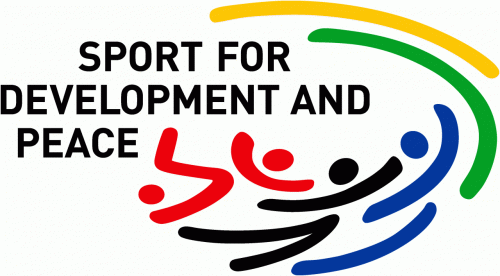On April 21st, Ukrainians elected their new president, Volodymr Zelensky, with a landslide 73% of the popular vote. Unlike his incumbent opponent, Zelensky is a newcomer to the world of politics – or, rather, the real world of politics. In what could easily be described as the natural progression in our current state of affairs, Zelensky gained fame and popularity in the satirical comedy “Servant of the People,” in which he played, yes, the president of Ukraine.
While many may dismiss Zelensky as a result of celebrity and a frustrated electorate, the recent Ukraine election reveals the increasing influence of mass media and the arts on politics and governance, and furthermore why a political satirist may in fact be a very good thing for the embattled country.
“Servant of the People” is itself a show decrying the state of politics in Ukraine. Its protagonist whom Zelensky portrayed, Vasyl Holoborodko, begins as a high school history teacher living on a meager salary in an apartment he shares with his parents, sister and niece. He is catapulted to the presidency after a rant on the corruption which plagues Ukrainian elections, secretly recorded by a student, goes viral online.
In his newfound position Holoborodko embraces his role as a political outsider, working against shadowy oligarchs to fix the inner workings of government. Despite its comedic excesses, “Servant of the People” has served as a mirror for the frustrating political strata that Ukrainians have continually dealt with.
In an early episode, for example, Holoborodko practices for his inauguration in a sprawling mansion that could not be more different than his own cramped apartment, furnished with, amongst other excesses, its own ostrich trainer. Absurdly, however, the scene was shot in the real-life 340 acre residence of former President Viktor Yanukovych, which does indeed include an ostrich enclosure. The estate was built using public funds.
Zelensky has certainly not shied away from comparisons with the show that launched him into the public eye. The third season of “Servant of the People” aired alongside the election campaign, with the fictional Holoborodko enacting policies and reforms that Zelensky then put forth in his own speeches. When he triumphantly stood on stage on election night, it was the show’s theme that played over the crowd’s cheers. Indeed, many point to the sitcom as a key factor in Zelensky being elected. Aleksey Kiryushchenko, who is the showrunner on “Servant of the People” as well as its main on-screen antagonist, numbers as one of them. “Do you think Zelensky would have won if it wasn’t for Holoborodko?” he posited. “People believe in Zelensky’s character on the show and can’t separate them.”
President Zelensky’s lack of political experience has caused consternation for some. There can be legitimate concerns raised over a presidential candidate without any concrete platform, and Zelensky certainly fits that mold. The incumbent president himself has played into his political ignorance, with “no promises, no disappointment” being amongst his campaign slogans. This is of particular concern in Ukraine, a state embroiled in troubles which include an increasingly assertive Russia, active combat within its eastern territory, and rampant corruption in its governmental bodies.
Zelensky has thus far come out relatively strong on Russia, and a rejection of oligarchic influence was one of the cornerstones of his campaign, which is unsurprising considering the anti-oligarch themes of his show. Despite this, fears remain, including criticisms over Zelensky’s business links to oligarch Ihor Kolomoisky, who has produced all of the comedian’s shows on his TV channel “1+1.” Zelensky denies that these links will affect his governance.
More broadly, however, there is perhaps a wider lesson to be learned from President Zelensky’s election, and a positive one at that. Zelensky captured the public imagination with a comedy series that satirized and skewered the bankrupt state of affairs that ordinary Ukrainians had become frustrated with. Political malaise is an unfortunate reality across the world, and certainly in Ukraine. Despite this, Zelensky was able to stir up vast levels of enthusiasm and hope through art, humour, and culture. This places him in contrast with other “celebrity politicians,” most notably President Trump, who merely used their widespread renown to gain attention and spread their unrelated political agendas. Fame for its own sake is rarely ever a good thing in politics, particularly when it comes at the cost of expertise and rationality. Yet there is something to be said for Zelensky, whose art acted as a vector for political optimism. In Ukraine, this accomplishment is all the more remarkable, considering the country’s past experience with broken promises and an unaccountable political elite.
Nothing about “Servant of the People” should act as a guarantee of how the new Ukrainian leader will perform in office. Life is not art, and President Holoborodko’s success as a political novice does not ensure that President Zelensky will do likewise. Even if Zelensky does follow the same unfortunate path as his country’s past presidents, though, there is something to be learned from his stories, both fictional and real.
Art can be and often is used to support particular political figures and movements, and more widely can be interpreted as an expression of the values people associate with politics as well as life. Leaders, institutions, and movements should be mindful of the ways in which creative works can motivate growth and change within their communities. Every-day culture and politics are often held to be inherently separate and different. Yet as the recent events in Ukraine demonstrate, when combined they can be uniquely powerful and, when used responsibly, an impetus for hope.
Photo: Volodymr Zelensky debates with then-President Petro Poroshenko (April 19, 2019) by the Presidential Administration of Ukraine via Wikimedia Commons. Public Domain.
Disclaimer: Any views or opinions expressed in articles are solely those of the authors
and do not necessarily represent the views of the NATO Association of Canada.




